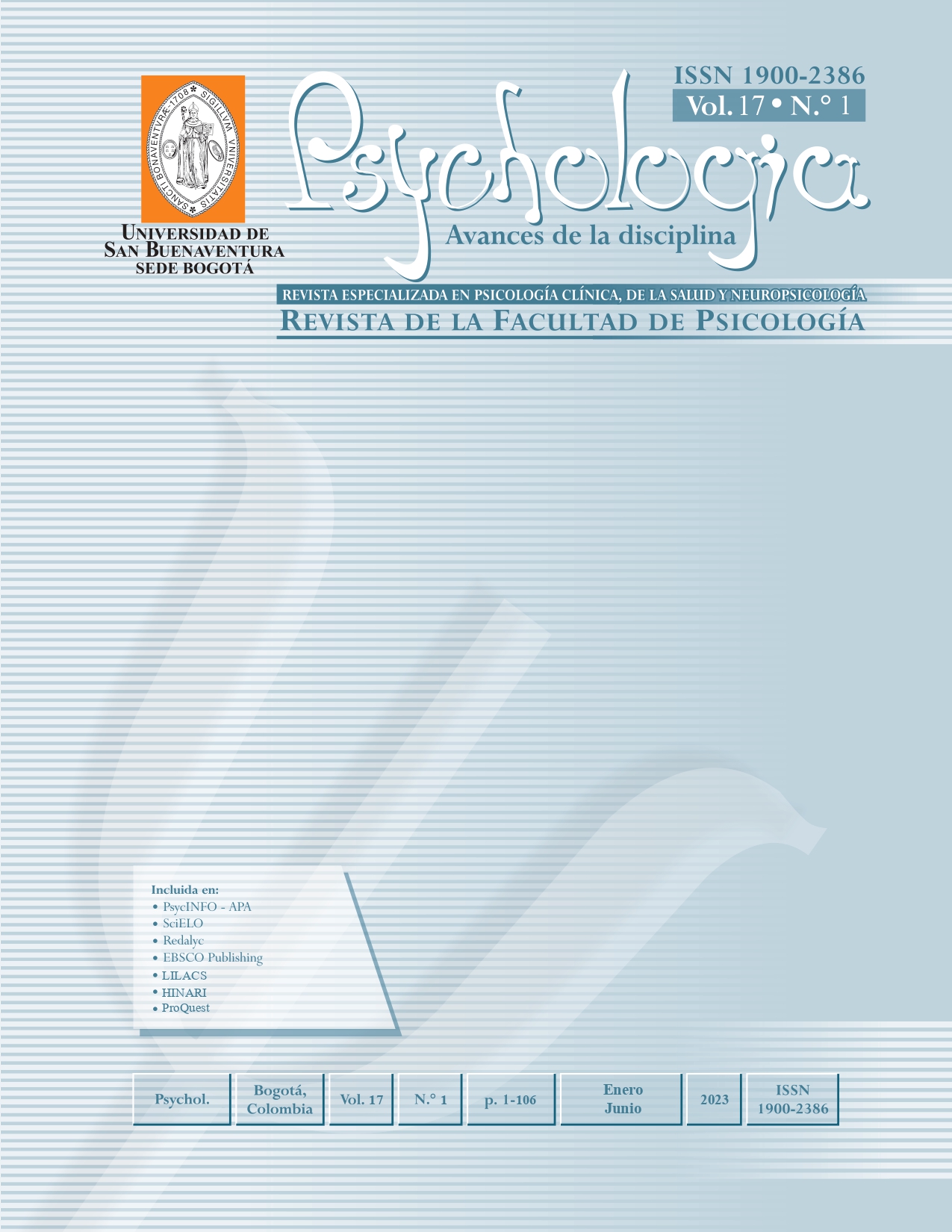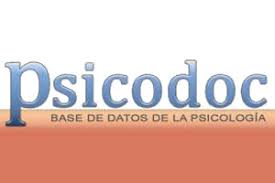This journal provides open, immediate access to its contents, based on the principle that offering the public free access to research helps to promote a higher global exchange of knowledge.
As such, all journal articles are published under a Creative Commons Attribution-NonCommercial-ShareAlike 4.0 International License (CC BY-NC-SA), by which commercial use of the original work or its possible derived works is not allowed, and the distribution thereof must be done with the same license elements regulating the original work.
http://creativecommons.org/licenses/by-nc-sa/4.0/
Abstract
The aggressiveness has been recognized as prevalent in teenage population due to their impulsive character, with that emotional instability which characterizes adolescence. This conducts to the need of knowing the frequency and the relationship of risk factors of aggressiveness in teenage population, exploring their differences according to sex. Thus, this research of non-experimental design and correlational scope studied the presence and the relations between aggressiveness and its risk factors in 212 teenage women and 188 teenage men between 12 and 17 years of age. For this, a record card of risk factor evaluation was implemented along with the questionnaire of premediated / impulsive aggressiveness (CAPI-A in Spanish). The findings show a higher prevalence of impulsive aggressiveness and the presence of more relations to risk factors in women than in men. The relevant risk factors in women are the attitudes towards norms, the perception about aggressiveness and the feelings; in men, risk conducts and feelings are the ones to mention. These results useful for the comprehension of aggressiveness as a behavioral pattern, and the design of preventive interventions towards aggressiveness and their consequences.
References
Andreu, J. (2010). Manual cuestionario de agresividad premeditada e impulsiva en adolescentes. Ediciones TEA: Madrid.
Andreu, J., Peña, M. y Penado, M. (2013). Impulsividad cognitiva, conductual y no planificadora en adolescentes agresivos reactivos, proactivos y mixtos. Anales de Psicología, 29(3), 734-740. https://dx.doi.org/10.6018/analesps.29.3.175691
Berkowitz, L. (1989). The frustation-aggression hyphotesis: an examination and reformulation. Psychological Bulletin, 106, 59-73. https://doi.org/10.1037/0033-2909.106.1.59
Bouquet, G. S., García-Méndez, M., Díaz-Loving, R. y Rivera-Aragón, S. (2019). Conceptuación y medición de la agresividad: validación de una escala. Revista Colombiana de Psicología, 28, 115-130. https://doi.org/10.15446/rcp.v28n1.70184
Carvalho, L., Pianowsk, G. y Koich, F. (2015). Revision of the Aggressiveness dimensión of dimensional Clinical Personality Inventory. Revista Psicologia: Teoria e Prática, 17(3), 146-163. http://www.redalyc.org/articulo.oa?id=193843509012
Castañeda, A., Del Moral, G. y Suárez, C. (2017). Variables psicológicas comunes en la violencia escolar entre iguales y la violencia filio-parental: un estudio cualitativo. Revista criminalidad, 59(3), 141-152. http://www.scielo.org.co/scielo.php?script=sci_arttext&pid=S1794-31082017000300141
Cordero, P. (2022). La agresividad en los escolares adolescentes: una revisión de la literatura científica del 205 al 2020. Conrado, 18(84), 202-206.
Crespo, S., Romero, A., Martínez, B. y Musitu, G. (2017). Variables psicosociales y violencia escolar en la adolescencia. Psychosocial Intervention, 26, 125-130. https://dx.doi.org/10.1016/j.psi.2017.05.002.
Delgado, J. (2017). Violencia en las relaciones de noviazgo: una revisión de estudios cualitativos. Apuntes de psicología, 35(3), 179-186. https://www.apuntesdepsicologia.es/index.php/revista/article/view/692
Gallarin, M., Torres-Gómez, B. y Alonso-Arbiol, I. (2021). Aggressiveness in Adopted and Non-Adopted Teens: The Role of Parenting, Attachment Security, and Gender. International Journal Environment Reserch Public Health, 18, 1-15. https://doi.org/10.3390/ijerph18042034
Herdoiza-Arroyo, P. y Chóliz, M. (2019). Impulsividad en la adolescencia: utilización de una versión breve del cuestionario UPPS en una muestra de jóvenes latinoamericanos y españoles. Revista Iberoamericana de Diagnóstico y Evaluación, 11(50), 123-135. https://doi.org/10.21865/RIDEP50.1.10
Larraz, N., Urbon, E., Antoñanzas , J. L. y Salavera, C. (2020). La Satisfacción con la Familia y su Relación con la Agresividad y la Inteligencia Emocional en Adolescentes. Know And Share Psychology, 1(4). https://doi.org/10.25115/kasp.v1i4.4247
Lin, S., Yu, C., Chen, J., Zhang, W., Cao, L. y Liu, L. (2020). Predicting adolescent aggressive behavior from community violence exposure, deviant peer affiliation and school engagement: A one-year longitudinal study. Children and youth services review, 111, 104840. https://doi.org/10.1016/j.childyouth.2020.104840
Martínez, A. y Rojas, M. (2016). Argumentos metapsicológicos para un proyecto de intervención-investigación clínica sobre la agresividad. Revista Affectio Societatis, 13(24), 73-88.
Martínez, A., Ruiz-Rico, G., Zurita, F., Chacón, R., Castro, M. y Cachón, J. (2017). Actividad física y conductas agresivas en adolescentes en régimen de acogimiento residencial. Suma Psicológica, 24, 135-141. https://doi.org/10.1016/j.sumpsi.2017.02.002
Obregón, G. (2017). Resentimiento y agresividad en estudiantes de 5to de secundaria. Avances en Psicología Latinoamericana, 25(2), 199-208. https://doi.org/10.33539/avpsicol.2017.v25n2.355
Organización Panamericana de la Salud (2022). Salud del Adolescente. Recuperado de https://www.paho.org/es/temas/salud-adolescente
Ortega, J. y Alcázar, M. (2016). Neurobiología de la agresión y la violencia. Anuario de Psicología Jurídica, 26, 60-69. DOI: 10.1016/j.apj.2016.03.001
Penado, M., Andreu, J. y Peña, E. (2014). Agresividad reactiva, proactiva y mixta: análisis de los factores de riesgo individual. Anuario de Psicología Jurídica, 24, 37-42. https://doi.org/10.1016/j.apj.2014.07.012
Ramírez, C. y Arcila, W. (2013). Violencia, conflicto y agresividad en el escenario escolar. Educación y Educadores, 16(3), 411-429. http://www.redalyc.org/articulo.oa?id=83429830002
Restrepo, J. E. y Acosta-Tobón, S. A. (2023). Diferencias de género en la agresividad en jóvenes
infractores en Medellín, Colombia. Revista Latinoamericana de Ciencias Sociales, Niñez y Juventud, 21(2), 1-25. https://dx.doi.org/10.11600/rlcsnj.21.2.5485
Redondo, J., Rangel, K. y Luzardo, M. (2016). Conducta agresiva en una muestra de estudiantes de tres colegios de la ciudad de Bucaramanga, Colombia. Encuentros, 14(1), 31-40. https://doi.org/10.15665/re.v14i1.667
Roncero, D., Andreu, J. y Peña, M. (2016). Procesos cognitivos distorsionados en la conducta agresiva y antisocial en adolescentes. Anuario de Psicología Jurídica, 26, 88-101. https://doi.org/10.1016/j.apj.2016.04.002
Rosser, A., Suriá, R. y Mateo, M. (2018). Problemas de conducta infantil y competencias parentales en madres en contextos de violencia de género. Gaceta Sanitaria, 32(1), 35-40. https://doi.org/10.1016/j.gaceta.2017.02.004
Sanabria, A. y Uribe, A. (2010). Factores psicosociales de riesgo asociados a conductas problemáticas en jóvenes infractores y no infractores. Diversitas, 6, 257-274. https://www.redalyc.org/articulo.oa?id=67915140005
Sánchez, P. (2018). Diferencias individuales en agresividad juvenil. Psicopatología clínica legal y forense, 18(1), 94-111.
Silva-Fernández, C., Aceros, L. y Galván-Patrignani, G. (2021). La caracterización de la conducta agresiva y de variables psicosociales en una muestra de la ciudad de Bucaramanga y su área metropolitana. PSICOGENTE, 24(46), 1-22. https://doi.org/10.17081/psico.24.46.4498
Socastro, A. y Jiménez, A. (2019). Agresividad impulsiva y proactiva, moldes mentales y rasgos de personalidad en adolescentes. Behavior & Law Journal, 5(1), 31-3. Recuperado de https://behaviorandlawjournal.com/BLJ/article/view/66/81
Talavera, J. (2016). Bienestar espiritual y agresividad en internos con adicciones a sustancias psicoactivas en centros de rehabilitación de Lima, Perú. Informes Psicológico, 16(2), 69-86. https://doi.org/10.18566/infpsicv16n2a05
Unicef (2020). ¿Qué es la adolescencia? Recuperado de https://www.unicef.org/uruguay/que-es-la-adolescencia
Villarejo, S., Martinez-Escudero, J. A. y Garcia, O. F. (2020). Estilos parentales y su contribución al ajuste personal y social de los hijos. Ansiedad y estrés, 26(1), 1-8. https://doi.org/10.1016/j.anyes.2019.12.001





















